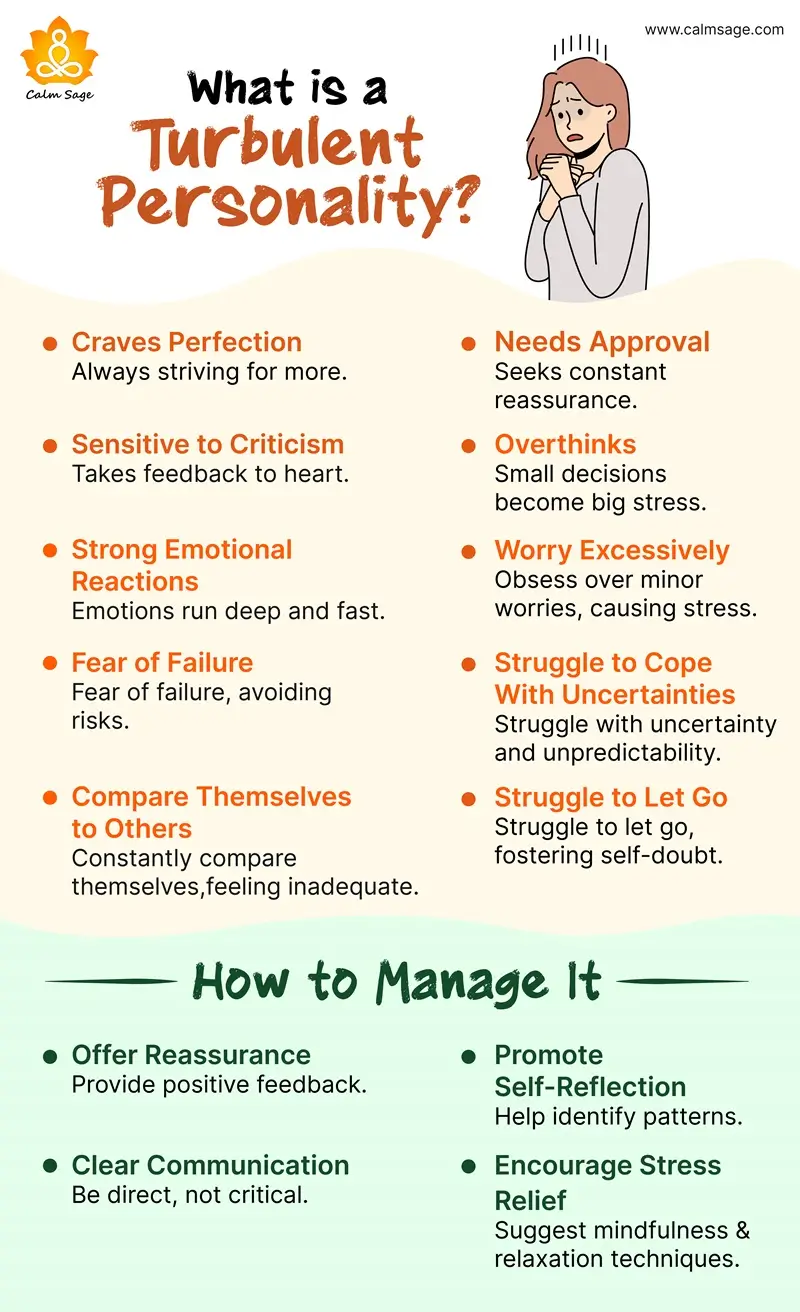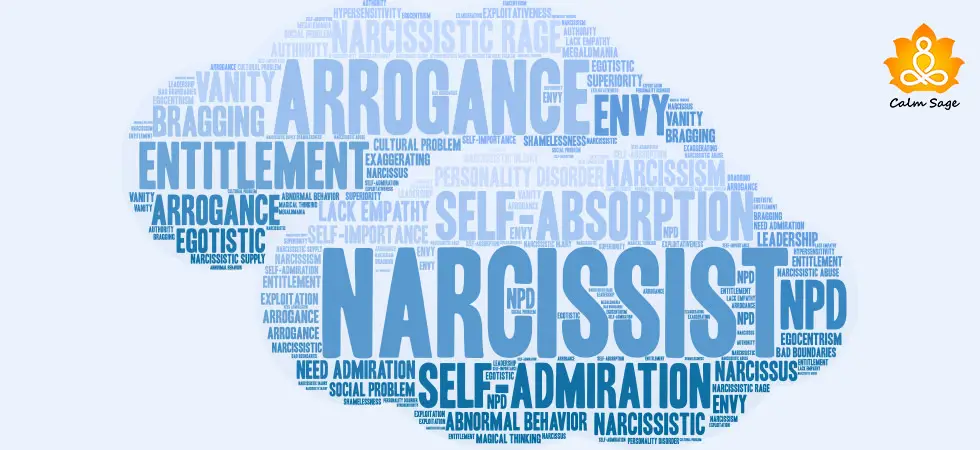Do You Have Turbulent Personality Traits? Find Out Here!

In my social circle, there are different types of people I interact with, which is fair. I can’t expect everyone to be similar. And I’m sure that you’ve also encountered different personalities in your life. With some, it’s smooth sailing, while with others, it can be a little like trekking through a difficult hike. Knowing that there are different personalities can help you become better at communicating with them and live in harmony.
One of the personalities that I’ve recently heard about is the turbulent personality. Personalities exist on a spectrum, so there are different personalities, each with their distinct color and patterns. Out of the vibrant ones and dark ones, there comes this personality; the turbulent personality.
If you can relate to being success-driven and constantly pushing to improve, then you can have turbulent personality traits. While there are benefits to having this personality type, there are some downsides as well when it comes to your overall well-being.
In this article, let’s explore what’s a turbulent personality, its characteristics, and how you can manage having this personality type.
What is a Turbulent Personality?
If you have turbulent personality traits, then you’re someone who experiences intense emotional fluctuations and has high sensitivity towards anxiety and stress. This personality can be almost like a thunderstorm; unpredictable, strong, and with long-lasting impacts on your overall health and well-being.
On the positive side, you have a desire to push yourself to become better; do more, and you’re success-driven too. However, you are more prone to heightened anxiety, perfectionism, and excessive worrying, all of which can have a negative impact on your health and mind.
An example of a turbulent personality can be; A person seeks constant reassurance, worries about little things, and can be overly self-critical. This is just one side of the turbulent personality.
Many people get confused between assertive and turbulent personality types. When I talk about an assertive personality, it means that you are even-tempered, don’t worry excessively, and are confident enough to handle stress. On the other hand, having a turbulent personality means you experience mood swings, have high sensitivity to stress and anxiety, are a perfectionist, and might get easily overwhelmed.
Let’s take a deeper look into the turbulent personality characteristics below.
Turbulent Personality Characteristics
1. They Crave Perfection
People with turbulent personalities often have high expectations for themselves, as they crave perfection in whatever they do. This can typically cause them to feel anxious and stressed as they feel constantly pressured to meet their typically high standards.
2. They Have a Strong Need for Approval
Another trait of turbulent personalities is that they constantly seek approval from others. These people may be concerned about how others see them, often shaping their behavior on the expectations of others.
3. They Are Sensitive to Criticism
While these personalities are success-driven, criticism can hurt them badly. Turbulent personalities are sensitive to criticism and can interpret it as an attack to themselves. This can make them react strongly.
4. They Worry Excessively
Turbulent personality traits also include excessive worrying. People with this personality type spend their time worrying about little things. Their minds are always almost preoccupied with potential worries, causing them to be stressed and uneasy.
5. They Are Overthinkers
If you’re a turbulent person, then making simple decisions can feel like too much of a task. It’s because turbulent personalities are overthinkers and tend to overanalyze situations, thinking of multiple scenarios, and negative outcomes, making simple decisions a tough job.
6. They Have a Fear of Failure
People with turbulent personalities have a strong fear of failure. This can affect their ability to take new risks, try new things, and be an opportunistic person. They fear that not meeting their standards might lead them to face criticism, starting a loop of overwhelming emotions.
7. They Struggle to Cope With Uncertainties
Another turbulent personality characteristic is that these people struggle to cope with uncertainties. They prefer clear expectations and find it hard when they are faced with unpredictable and uncertain situations.
8. They Have Strong Emotional Reactions
People with turbulent personality traits have strong emotional reactions to situations. Whether it’s happy emotions such as joy or other emotions such as anger or sadness, their responses are strong and might fluctuate rapidly, making them a human rollercoaster of emotions.
9. They Compare Themselves to Others
Turbulent personalities often fall into the trap of comparison, where they constantly compare themselves to others, especially regarding success. This constant trap of comparison can cause feelings of inadequacy and further cause them to seek reassurance.
10. They Struggle to Let Go
Holding onto past regrets is never a healthy solution, but for people with turbulent personality traits, it’s a common one. These people struggle to let go of past mistakes and failures, which can contribute to feelings of anxiety, low self-esteem, and self-doubt.

How to Manage a Turbulent Personality?
So, how can you deal with a turbulent personality? Here are some tips for you;
1. Offer the reassurance they seek.
You can help a person with a turbulent personality by offering them positive feedback and reassurance. It can help them soothe their anxiety.
2. Help them with self-reflection.
You can also help turbulent personalities recognize their negative patterns and offer them help with self-reflection. It can go a long way to help them feel better about themselves.
3. Be clear with communication.
Turbulent personalities are no-nonsense people, so be clear with your expectations and offer constructive feedback whenever possible. Make sure you frame your sentences to sound supportive and not critical.
4. Encourage stress relief techniques.
You can also help a turbulent personality by encouraging them to engage in stress relief techniques such as mindfulness, meditation, and deep breathing exercises to soothe anxiety and relieve stress.
Wrapping Up…
Understanding the intricacies of a turbulent personality needs empathy, compassion, and patience. Remember, each personality has its own strengths and weaknesses, and just like every storm might come to pass, charting the turbulent seas of this personality type could help you strengthen your relationships and improve your interactions.
The spectrum of personalities might be diverse, but with the right knowledge, you can find your way around them with ease.
I hope this article helped you understand what a turbulent personality, its characteristics, and how to manage it. Let me know your thoughts in the comments below.
Take Care!




















